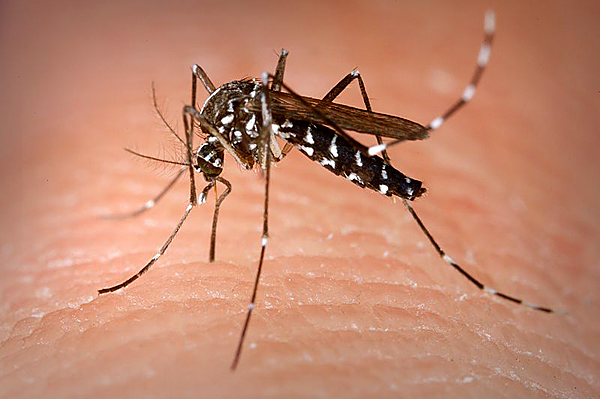Drug-Resistant Malaria in Eastern Burma has Expert Warning of Potential Health Crisis

Today marked World Malaria Day, and while the global community celebrated significant declines in moratlity rates from malaria since 2000, a new drug-resistant form of the parasite has one leading expert warning of a potential health disaster.
In the last ten years, the fight against malaria has seen dramatic decreases in deaths. A concerted effort across the world to combat malaria since 2000 has saved the lives of millions, with the World Health Organisation estimating that there had been a 42% reduction in mortality rates from the parasite in the last 15 years. “Increased political commitment and the expansion of global malaria investments have saved some 3.3 million lives since 2000.” Dr Margaret Chan, Director-General at WHO said today – And although the toll is still high, with WHO statistics estimating that of the 207 millions cases of malaria in 2012 in 97 countries, 600 000 people died, the statistics highlight an overall decline in cases.
One leading expert, however, says the fight against malaria is perhaps at its most critical stage in decades.
Dr. Francois Nosten, Professor in Tropical Medicine and Director of the Shoklo Malaria Research Unit (SMRU) which was founded in 1986 in the town of Mae Sot on the Thai-Burma border, acknowledged that while the caseload of malaria was dropping in the region, a new and far greater threat was emerging: drug-resistant forms of the parasite.
Dr. Francois, who has been researching and involved in combating malaria for more than three decades, said that a form of the parasite resistant to the main anti-malaria drug, Artemisinin, was “the single most important health threat.”
SMRU which has treated over 20,000 people with artemisinin, was already starting to see clear signs of drug-resistance in some patients, “artemisinin used to take just one day to cure a patient, now it can take up to five days,” Dr. Francois said, adding “we already know it has reached some communities in Burma. It is not only in the border area – Malaria with the highest caseloads in Burma, Rakhine State, Kachin State, Karen State.
The Clock Is Ticking
Dr. Francois warned that if the world did not quickly in changing to an elimination strategy, a form of malaria completely resistant to artemisinin and its partner drugs could claim the lives of millions while the world scrambled to develop a new drug.
“If you looked what happened in the 1990s where drug resistance was very high than the number of people dying was in the millions, much higher than today. We think that if we lose the drugs we have now then the progress that has been made since 2000 decade will be destroyed – malaria will come back, cases will increase and therefore the number of people dying from it will increase – the scenario of the 1990s could come back.”
With such high risks, Dr. Francios said that nothing short of a global shift in strategy from malaria ‘control’ to ‘elimination’ was needed.
“Until now the strategies that have been used are about malaria control where you look for and treat the sick. This is okay if you have decades to spend – but because of this growing drug resistance we are in a hurry. In malaria elimination we look for the parasite, which can live in people who are not sick as carriers. So if most people in a village are carriers we have to treat the whole village,” he said, “Malaria elimination is urgent – we need to act now we can’t wait two or three years. If we think that the resistance is spreading then the only thing w can do is to eliminate it.”
A Lack of Leadership?
Dr. Francois was critical of WHO’s role as the global leader in the fight against malaria, maintaining that the organisation lacked decisive leadership and needed to “take charge on the issue.”
“[The WHO] are not coming up with plans and actions on the ground which have a measurable impact on the situation. What has been done so far is meetings and more meetings but when you go to Eastern Burma or Western Cambodia nothing is happening there. So with the WHO there is not a lack of meetings but there is a lack of action in the field.”
Dr. Francois said the lack of leadership from WHO created needless confusion. “It’s a big concern because otherwise the governments are left on their own and they are trying to find as many advisers as they can and of course that creates a lot of confusion and that can lead to ineffective policies.”
Adding to the complexity of the looming crisis was the everyday challenges of just accessing affected populations in Eastern Burma, including Karen State, and parts of remote Thailand.
“We need to diagnose and treat cases where there are poor roads or sometimes no roads at all. Given the remoteness of these villages… and political instability in the region; the work can be very difficult.”
Dr. Francois said that in spite of the problems, he was “cautiously optimistic” that malaria could be eliminated. “The attitudes of the authorities is changing – they realise there is a problem here that needs to be addressed.”




